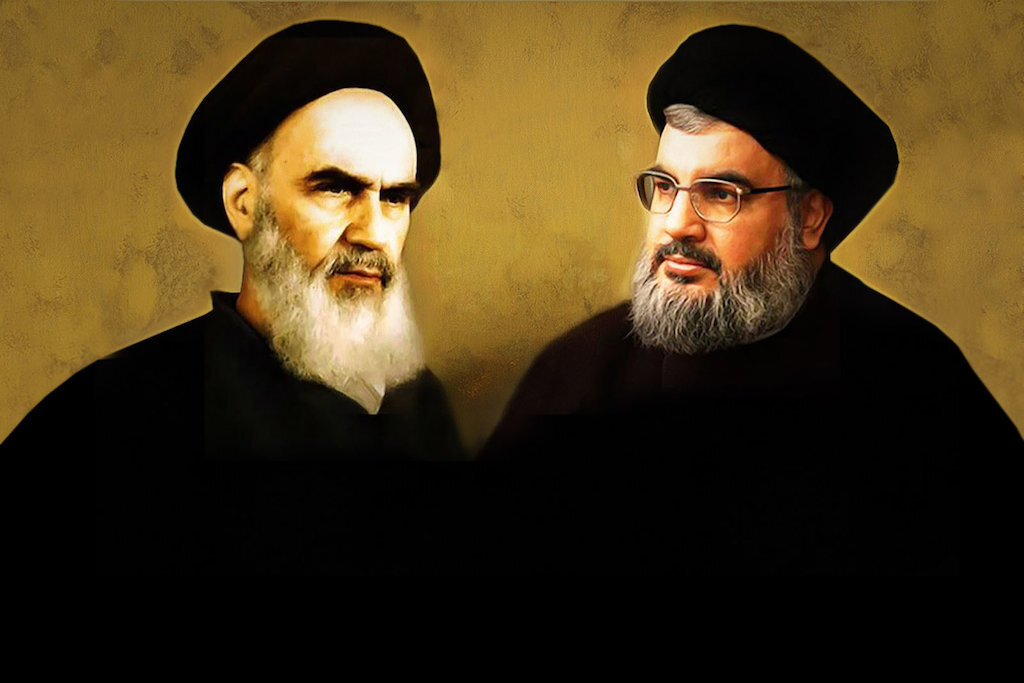BEIRUT – On the anniversary of Imam Khomeini’s (RA), Chief Secretary of Hezbollah Sheikh Naim Qassem asserted that “revolutionary Iran has delved firmly along the front of resistance to free Palestine and Holi al-Khud, in Imam Khomeini’s leadership.”
The Hezbollah chief emphasized that the Islamic Umma is “today illuminated by the pure rays of light from Muhammadan Islam, which Imam Khomeini established through his revolutionary project.”
Sheikh Qassem said, “The late Imam embodied the values of faith and refused to injustice, occupation and subordinate.” He said these principles remain a beacon of Western Asia’s resistance and liberation movement.
The Secretary-General of Hezbollah added: “The victory of truth over falsehood will experience hope after this God’s leader has achieved historic change and then transformed Iran from Shah’s rule, which supported the United States, into a oppressed, independent, dignified Islamic republic of the world.”
Before the victory of the Islamic Revolution in February 1979, under the reign of Shah (king) Mohammadrezapalavi, Iran had closest ties to the Zionist groups, consistent with the American and Israeli projects.
However, from the beginning of his movement in 1963, Imam Khomeini confronted the Shah, repeatedly affirming his absolute support for Palestinian resistance, freeing everything from the river to the sea.
In 1968, Imam Khomeini announced the famous Fatwa, which ordered the donations of Khums and Zakat to support the Palestinian cause.
Before the victory of Imam Khomeini’s revolution, the Amal Movement led by Martel Saeed Musa Al Sadr (RA) protected dozens of Iranian revolutionaries who played an important role in strengthening cooperation with Palestinian resistance leaders.
Immediately after the victory of Imam Khomeini’s revolution, the slogan “Iran today, Palestine tomorrow” was raised.
Imam Khomeini made the historic decision to close the Zionist embassy and turn it into a Palestinian embassy, declaring the last Friday of the holy month of Ramadan as “International Quds Day.”
The first person to visit Iran was the late Palestinian leader Jaser Arafat. This led to a major strategic change in conflict with Zionist enemies, particularly after Egypt signed the Camp David Accord in 1978.
Due to Imam Khomeini’s overwhelming support for the Palestinian cause, Iran has launched many plots to overthrow Islamic facilities, including the unfortunate US operation, Eagle Kro. Ignition of internal conflict; and the bacist regime in Iraq became an Iranian invasion in line with ethnic propaganda against the Islamic Republic in the Arab media.
Despite these challenges, Imam Khomeini sent the Islamic Revolutionary Guard (IRGC) to support the Lebanese resistance movement after Israel’s invasion of Lebanon in 1982. This later paved the way for the birth of Hezbollah.
Hassan Nasrala, Secretary-General of Hezbollah, said, “Nine individuals will be delegated to the Islamic Republic and meet with Imam Khomeini. They will tell him, ‘What is our mission?’ His duty, despite your humble abilities and few, knows from scratch that everyone in the world will help your supporters.”
Martyr said fouad shukr (ra) also talks. “On June 6, 1982, Israel’s ground invasion began. In particular, I was expecting its purpose and scope, as I realized that the event was different from what preceded it. Stand up to the enemy.”
“We gathered young people at the mosque and told them that the enemy had arrived at Kalde (on the outskirts of Beirut). Anyone ready for martialism must now be prepared to clash and fight. I replied: “We are Hominists!” one of them was surprised: “I have never heard of it before.” I replied: “From now on, you will hear a lot.”
Despite the unfortunate pro-Israel position created by the Fatah movement, Imam Khomeini continued his support for the Palestinians, paving the way for the formation of a conference to support the Palestinian intifadas.
Imam Khomeini also established an office for Palestinian, Lebanese and Arab resistance.
This support was not linked to achieving personal benefits and was not conditioned to political, sectarian, doctrinal, or ideological considerations.
Furthermore, Imam Khomeini played a prominent role in providing relief assistance, sponsoring orphans and martyrs’ families, and caring for injured Palestinians.
Martyr said Hassan Nasrallah: “Around two months before his death, Imam Khomeini was extremely ill and rarely met anyone.
Following the end of Imam Khomeini, Iran integrated his approach through solid foreign policy. Iran’s support for Palestine and resistance stems from deep-rooted beliefs, approaches and ideology.
As Imam Khomeini’s Islamic Revolution continues to protect all rights and foundations of Palestine, various regimes rush to normalize relations with Israel’s enemies.

